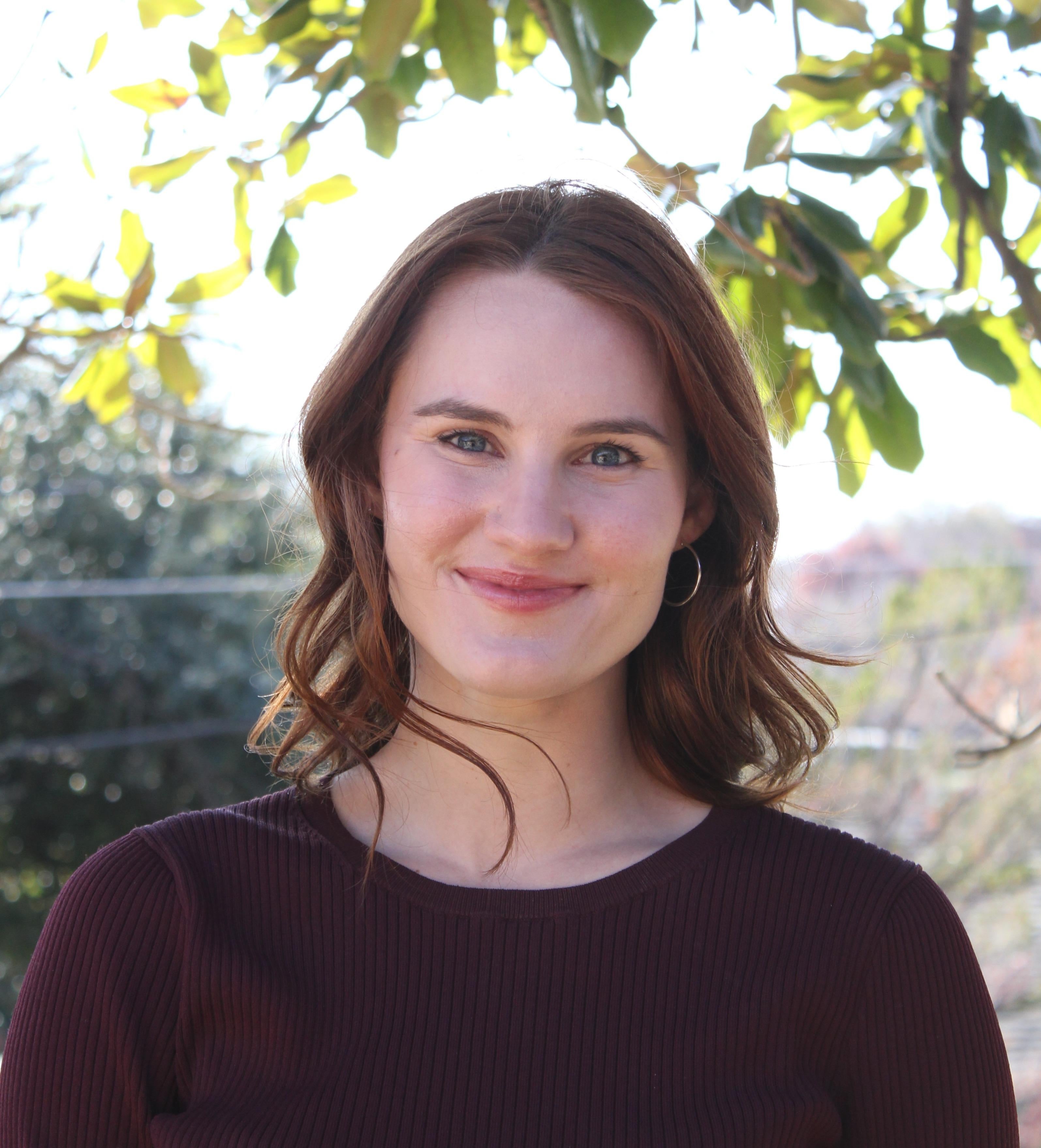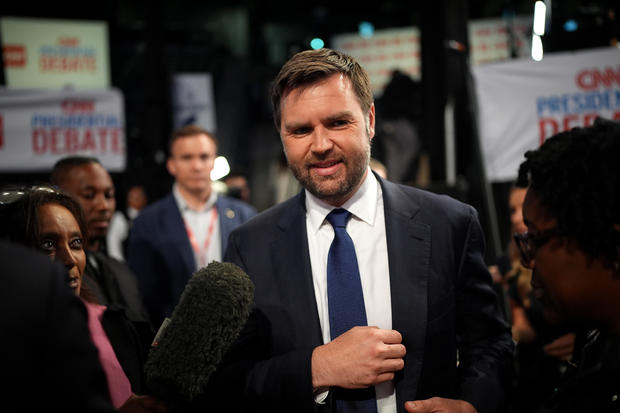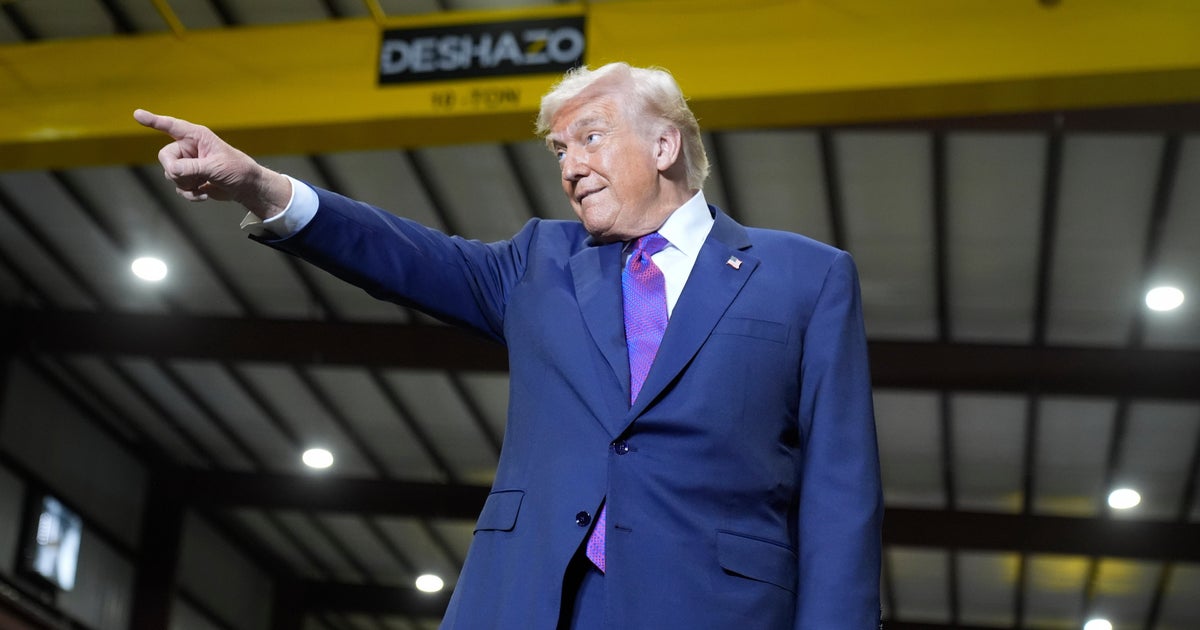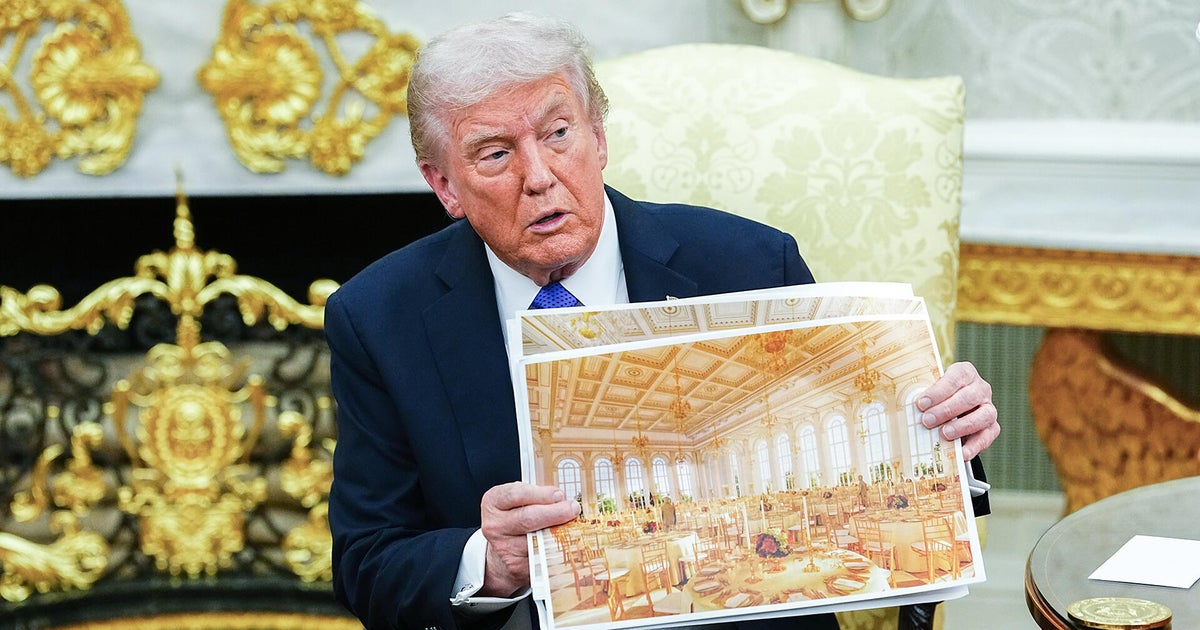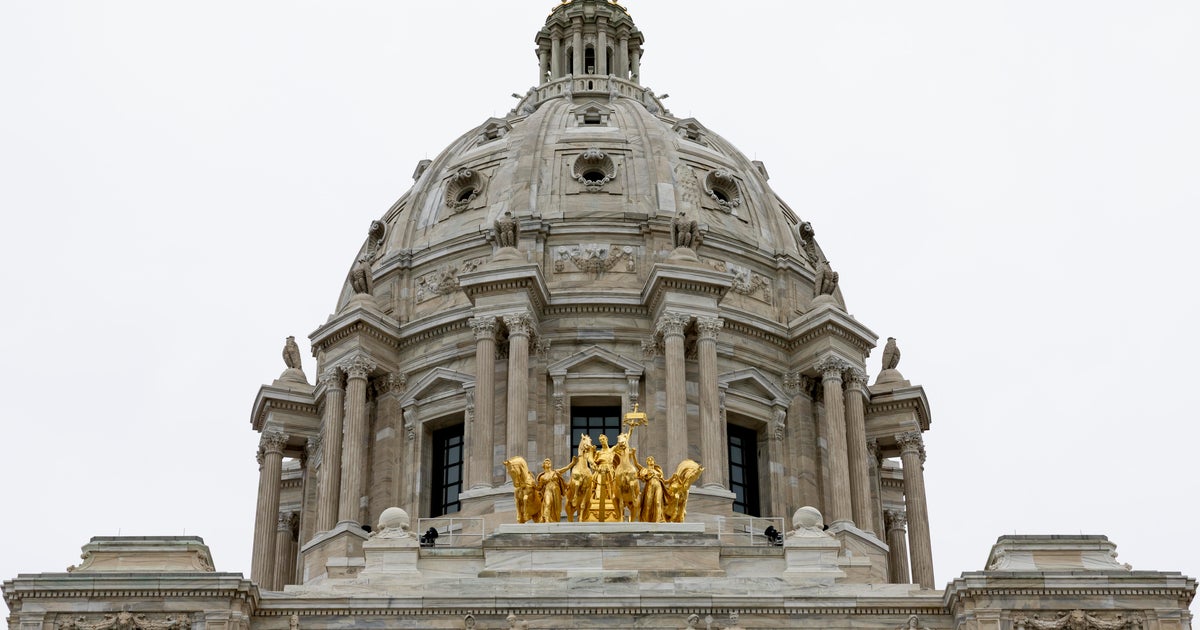Who is JD Vance, Trump's VP running mate?
Sen. JD Vance, the junior senator from Ohio, has come a long way in a short amount of time since he published his memoir, "Hillbilly Elegy," months before Donald Trump won the presidency in 2016.
Trump's 40-year-old running mate is going up against Minnesota Gov. Tim Walz in Tuesday night's vice presidential debate, hosted by CBS News in New York. Vance won election to the U.S. Senate in 2022, and has been a senator for less than two years.
Here's what to know about Vance's background:
Vance's book, "Hillbilly Elegy," catapulted him to fame
Vance's memoir, "Hillbilly Elegy," became immensely popular in 2016, telling Vance's personal story against the backdrop of the struggles of Appalachia and Rust Belt America.
A key message in Vance's book was that only by their own willpower can Americans in economically and socially struggling regions improve their own lives. But the book also gave Americans in coastal and more affluent areas a window into the lives of the people who made up the backbone of Trump's support in 2016. When Trump won, Vance's book became a bible of sorts for leaders and the media to better understand people who voted for Trump, and how a real estate mogul from New York could appeal to struggling Rust Belt Americans.
It rose back to the top of bestseller lists after Trump announced his choice for VP over the summer.
"JD's book, 'Hillbilly Elegy,' became a Major Best Seller and Movie, as it championed the hardworking men and women of our Country," Trump wrote on Truth Social as he announced Vance as his running mate. "J.D. has had a very successful business career in Technology and Finance, and now, during the Campaign, will be strongly focused on the people he fought so brilliantly for, the American Workers and Farmers in Pennsylvania, Michigan, Wisconsin, Ohio, Minnesota, and far beyond."
Vance said he would not have certified 2020 election if he were vice president
Vance has said he would have refused to certify the election on Jan. 6, 2020, if he were in Pence's position.
"If I had been vice president, I would have told the states, like Pennsylvania, Georgia and so many others that we needed to have multiple slates of electors," he told ABC News in February, "and I think the U.S. Congress should have fought over it from there. That is the legitimate way to deal with an election that a lot of folks, including me, think had a lot of problems in 2020. I think that's what we should have done."
In 2020, Trump pressured Pence, who presided over the joint session of Congress that affirmed the results of the presidential election, to refuse to certify the electoral votes that showed Joe Biden had won. Pence did not agree to do so, concluding that his role was ceremonial, and he ultimately announced that Mr. Biden had won — after an attack on the Capitol that day. Since then, Trump has continued to publicly claim that Pence "did have the right to change the outcome."
On the issues
Abortion
Although Vance said in 2022 that he'd back a national ban on abortions after 15 weeks, he indicated that he also supports Trump on leaving the question to the states.
"I am pro-life. I want to save as many babies as possible," he told CBS News' "Face the Nation" in May. "And sure, I think it's totally reasonable to say that late-term abortions should not happen with reasonable exceptions. But I think Trump's approach here is trying to settle a very tough issue and actually empower the American people to decide it for themselves."
Ukraine
Vance opposes U.S. aid for Ukraine, arguing in a New York Times op-ed in April that the administration lacks a plan for Ukraine's success. He wrote that Ukraine lacks the manpower and the firepower to fend off Russia and also that the U.S. does not have the manufacturing capacity to make up the difference. He believes that Ukraine and its western allies must give up the goal of a return to Ukraine's boundaries in 1991, after the fall of the Soviet Union, to move forward. The U.S. and European allies support Ukraine's sovereignty and territorial integrity and believe that Russian President Vladimir Putin will not stop his expansionism at Ukraine.
U.S. "could learn" from authoritarian Hungarian leader Victor Orbán
Vance said on "Face the Nation" in May that the U.S "could learn from" some decisions made by authoritarian Hungarian Prime Minister Viktor Orbán, including controversial policies related to dealing with dissidents at universities.
"On the university principle, the idea that taxpayers should have some influence in how their money is spent at these universities, it's a totally reasonable thing, and I do think that he's made some smart decisions there that we could learn from in the United States," Vance said.
Vance noted at the time that he was not endorsing every thing Orbán has done. Orbán, who is revered in some hardline conservative circles, seized control of state universities, a move that critics say has extended his government's right-wing influence. Vance has praised the approach, saying his way could be the model for eliminating what he views as a left-wing bias at American universities. The May comments came as many universities in the U.S. were embroiled in protests from pro-Palestinian students.
Orbán has endorsed Trump in this year's presidential election and said he hopes Trump can bring an end to Russia's war in Ukraine.
Train and rail safety
Vance has been a leading voice on train safety after the toxic train disaster that spawned health and environmental concerns for the residents of East Palestine, Ohio. He is part of a bipartisan group of six senators who introduced rail safety legislation in March 2023 that aims to prevent future derailments. The measure has not passed in the Senate even though it has six GOP co-sponsors and the support of six Democratic lawmakers.
Vance defended Trump over false claims about Harris' racial identity
In July, Trump made false claims about Harris' racial identity, telling a room of Black journalists that Harris "happened to turn Black."
"I respect either one, but she obviously doesn't, because she was Indian all the way, and then all of a sudden she made a turn and she went – she became a Black person," Trump said.
Vance — who is the father of biracial children — defended Trump's remarks, saying the former president's comments "don't give me pause at all."
"Look, all he said is that Kamala Harris is a chameleon," Vance said.
Vance's "childless cat ladies" comments have dogged him
During a Fox News appearance in 2021, Vance said the nation was being run by a "bunch of childless cat ladies who are miserable at their own lives and the choices that they've made and so they want to make the rest of the country miserable, too."
Vance has made variations of the comment about childless people through the years, and hasn't backed down on them. Those comments have dogged his campaign, and the Harris-Walz campaign and other Democrats have seized on them. Walz, the Democratic vice presidential nominee, has called Trump and Vance "weird" over comments like Vance's.
Vance had a challenging childhood
Born James Donald Bowman in August 1984 in Middletown, Ohio, Vance was 6 years old when his biological father gave him up for adoption to his stepfather. His name changed from James Donald Bowman to James David Vance.
Vance's childhood was tumultuous. Not only did his father leave the family, but his mother struggled with an addiction to drugs and alcohol, which Vance documented in his book. Vance spent much of his time growing up with his grandparents in Kentucky. His grandmother, a "blue dog" Democrat who owned 19 handguns, according to Vance's Senate biography, was a big influence on his life.
After graduating from high school, Vance enlisted in the U.S. Marine Corps.
He holds a law degree from Yale
As Vance discussed at length in his book, adapting to the social expectations and nuances of the elite culture at Yale University was initially a challenge for him. Vance graduated with a law degree from Yale in 2013.
In the Senate
Vance serves on the Banking, Housing, and Urban Affairs Committee; the Commerce Science and Transportation Committee, Joint Economic Committee and the Special Committee on Aging.
Vance's wife, Usha, is an accomplished lawyer
Vance met his wife, Usha Chilukuri, at Yale. They married in 2014. She is a litigator and clerked for Supreme Court Chief Justice John Roberts, as well as Supreme Court Justice Brett Kavanaugh when Kavanaugh was a federal judge. Vance and Chilukuri, who is Indian-American, have three young children.
Hunter Woodall, Caitlin Huey-Burns and Melissa Quinn contributed to this report.
